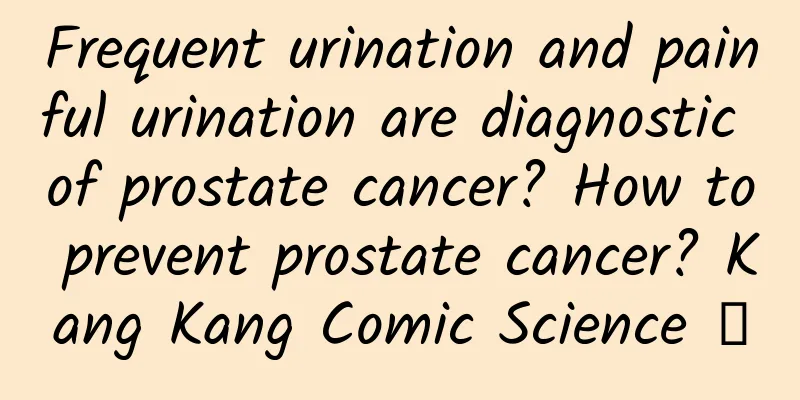Physical examination report says low bone density? Don’t rush to take calcium tablets, here is the truth!

|
When low bone density is found during a physical examination, many people's first reaction is to "quickly supplement calcium." However, is this approach really scientific? Today, let's talk about the truth behind low bone density and how to deal with it scientifically. 1. Low bone density ≠ calcium deficiency Bone density is an important indicator of bone mineral content, but it is not completely equivalent to calcium deficiency. Bone health depends not only on the calcium content, but also on factors such as bone structure, the quality of bone collagen, and the balance of bone metabolism. In fact, low bone density may be caused by a variety of reasons, such as insufficient vitamin D, lack of exercise, long-term use of certain medications, and even some chronic diseases. 2. Risks of blindly supplementing calcium Many people think that as long as they take more calcium, their bone density will naturally increase. However, studies have shown that the effect of calcium supplementation alone is actually very limited. What's worse, excessive calcium supplementation may cause a series of health problems, such as kidney stones and vascular calcification. Especially for the elderly, the daily calcium intake is recommended to be controlled at 1000-1200 mg. Exceeding this range may increase the risk of cardiovascular disease. 3. How to deal with low bone density scientifically? (1) Dietary adjustment High-calcium diet : Eat more calcium-rich foods such as dairy products, beans, nuts, and dark green vegetables. Supplement vitamin D : Vitamin D can significantly enhance calcium absorption, which can be supplemented by sun exposure (at least 20 minutes a day) or eating foods rich in vitamin D (such as milk, egg yolks, fish, etc.). Balanced diet : Keep a varied diet and avoid high-salt, high-fat diets, as high salt can accelerate calcium loss. (2) Exercise intervention Weight-bearing exercises : such as walking, jogging, dancing, etc. These exercises allow the body to bear its own weight, stimulate bone growth, and help increase bone density. Muscle strengthening exercises : Using elastic bands, dumbbells, etc. for strength training can increase muscle strength and reduce the burden on bones. Balance and flexibility training : Exercises such as yoga and Tai Chi can help improve body coordination and balance, and reduce the risk of falling. (3) Regular check-ups and professional guidance <br /> If your bone density is low, it is recommended that you go to a regular hospital for a check-up to rule out the influence of other diseases. Under the guidance of a doctor, choose appropriate supplements or medications according to your specific situation. 4. Conclusion Low bone density does not mean that you have to take calcium supplements like crazy. Blind calcium supplementation not only has limited effect, but may also bring health risks. Scientific diet, reasonable exercise and regular health checks are the right way to maintain bone health. So, when you see "low bone density" on the physical examination report, don't panic, start with your lifestyle to make your bones healthier! |
Recommend
I feel very hungry but can't eat during early pregnancy
Pregnancy is a happy and uncomfortable thing, bec...
Some people say that lard residue can prevent cancer, while others say that lard residue is harmful to the cardiovascular system. Let's hear what doctors say.
There are many rumors about "lard residue&qu...
What is ectopic pregnancy puncture
Many people may not be so clear about the examina...
Buttock pain at 38 weeks of pregnancy
Some women find that they have symptoms such as b...
Why do I have less urine in late pregnancy?
In the late stages of pregnancy, the fetus will d...
What is endometrial receptivity
I believe many friends are unfamiliar with endome...
Can I get pelvic inflammatory disease if I don't have sex?
Pelvic inflammatory disease is a type of gynecolo...
Menstruation half a month after hysteroscopy
Key reminder: Some women have their periods more ...
How to quickly relieve acid reflux during pregnancy
Stomach discomfort, acid reflux, vomiting, etc. i...
What is a transient ischemic attack?
About 1/3 of stroke patients have transient ische...
Is colposcopy uncomfortable?
In order to identify some gynecological diseases ...
What can I eat to cure my cough and phlegm during pregnancy?
Mothers are very prone to getting angry during pr...
What to do if there are white bubbles on the labia
Everyone should pay attention to the care and hea...
What is the effect of pregnant mother crying on the baby
The psychological changes of pregnant women affec...
Female low pressure 70 high pressure 90
In daily life, people's bodies have high and ...









